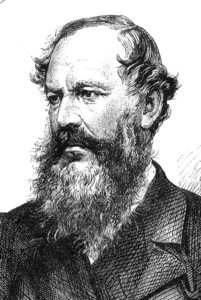
When reading the Bible, it’s easy to overlook the most important thing you should do to understand it: pray.
There are many things to pray about when you open the Word. Here are a few suggestions on how to pray before, during and after spending time in the Word. A good prayer need not be long. Even short two or three word prayers, when uttered from a heart of sincerity, can adequately express true devotion to Jesus.
1. A Prayer of Thanksgiving – “Thank You, Lord”
For the believer, every day is a day of Thanksgiving. We have 1,001 things for which we can give thanks to God, the great Giver. “Every good and perfect gift is from above, coming down from the Father of lights, who does not change like shifting shadows” (James 1:17). Isn’t the Word of God one of those “good and perfect” gifts? Absolutely!
This is a wonderful way to start your Bible time. Before you read a word, simply say “Thank you” to God for the incredible gift of his Word. The psalmist does precisely this in Psalm 119:62 – “At midnight I rise to give you thanks for your righteous laws.”
Do you ever get up in the middle of the night, wide awake, and wonder what to do with yourself? Apparently the author of Psalm 119 did that. Of course, you need not wait until midnight to give thanks to God for the Bible! Any time of day is a good time to read the Word, and every time you read the Word is a good time to express your gratitude for holy Scripture.
Of course, while reading and after reading are also good times to thank God for what he is teaching you. The “Thank you” prayer should tumble from your lips repeatedly during Word-time.
2. A Prayer for Understanding – “Teach me, Lord”
God delights to give us the insight to understand his Word. And he gives us that insight in response to our sincere request to receive it. So this is one of the first things we should request every time we open the Book.
The desire to understand God’s Word is expressed in another two-word prayer: “Teach me.” Do not read the Word without praying this powerful little prayer!
Like the “Thank You” prayer, the “Teach Me” prayer should be uttered before, during and after you read the Word. This is a prayer that the author of Psalm 119 loved dearly. This psalm is well known as the longest chapter in the Bible – 176 verses! And these 176 verses contain at least 75 prayers. Isn’t that amazing?
And the most common prayer in Psalm 119 is this: “Teach me.” It appears at least 11 times in this psalm. Here are these 11 verses. I urge to read them right now and take note of the many delightful ways the psalmist expresses this powerful two-word plea: Psalm 119:12, Psalm 119:26, Psalm 119:29, Psalm 119:33, Psalm 119:64, Psalm 119:66, Psalm 119:68, Psalm 119:108, Psalm 119:124, Psalm 119:135, Psalm 119:171.
As you spend time in the Word, why not take these verses and make them your own? Over the next couple weeks, pray each of these prayers, one each day. When expressed with genuine faith and love, there is no better prayer than a prayer that comes right from Scripture.
Another “Teach Me” prayer that doesn’t use those exact words is found in Psalm 119:18. This is one of my favorite prayers in the Bible: “Open my eyes that I may see wonderful things in your law.”
3. A Prayer for Transformation – “Change me, Lord”
Reading the Bible should never be an end in itself. If spending time in the Word does not result in radical change of every aspect of your life, something is amiss. This is why Paul told the Roman believers, “Do not conform any longer to the pattern of this world, but be transformed by the renewing of your mind” (Romans 12:2).
The best way I know to renew my mind is to spend much quality time in the Word. God will change you from the inside out, by the power of the Spirit who indwells you, when you read the Bible and let his truth permeate your heart and soul. The process of sanctification (increasing degrees of holiness and Christ-likeness from the day of your new birth until the day of your physical death) cannot occur apart from the transforming power of the Word.
This is why Jesus prayed, “Sanctify them by the truth; your word is truth” (John 17:17). I love that the New International Version provides this explanatory note for the word “sanctify,” which means to “set apart for sacred use” or “make holy.” Jesus is asking the Father to make us holy by the truth of his Word. What a great prayer! And what a life-changing experience God has in store for us as Christ-followers on the path of discipleship. Here we read that Jesus and the Father intend for our lives to become holy by means of the Word.
With that in mind, here are five questions you can ask God before, during and after Bible reading, all geared toward the goal of sanctification. These prayers can be prefaced by saying, “Lord, when I read this passage . . .
. . . is there a sin to confess, forsake or avoid?
. . . is there a promise to believe?
. . . is there a good example to follow or a bad example to avoid?
. . . is there a command to obey?
. . . is there something about God’s character for which I can praise Him?
(These questions come from Paul Little’s book, “How to Give Away Your Faith”.)
Note also how the “Change Me” prayer dovetails nicely with the “Thank You” and “Teach Me” prayers. There is a God-glorifying relationship among these prayers. I thank God for His Word and ask Him to teach me and change me through the reading of Scripture. Then He teaches me something, and I immediately thank Him for that truth and for giving me understanding of it, which prompts me to ask Him to empower me to incorporate that teaching into my life. The end result is that He changes me, causing me to become more like Christ, which gives me yet another reason to thank and glorify Him for the work He is doing in my life. And it all starts with this vital combination of prayer and the Word.
4. A Prayer for Glorification – “Glorify Yourself, Lord”
The first three prayers lead naturally to the fourth payer. We thank God because He gets all the credit for giving us the Word. Then we ask God for enlightenment, not just for our benefit, but so the God of truth is honored as the source of truth and the One who grants us the ability to grasp the meaning of His Word. Next we ask for transformation – the power to overcome sin with a life of holiness; this, too, is not for our glory but so God can be praised.
These three prayers all have the glory of God as their ultimate goal, and so it is fitting that we add the 3-word phrase “for your glory” to each one.
“Thank you, Lord, for your glory. Teach me, Lord, for your glory. Change me, Lord, for your glory.”
The glory of God can also be its own two-word prayer: “Glorify Yourself, Lord.” This is a wonderful little prayer that is the essence of the first line of the Lord’s Prayer in Matthew 6:9, where Jesus teaches us how to pray. “Our Father in heaven, hallowed be your name” (NIV). The word “hallowed” means holy or sanctified. So why are we praying that God’s name be holy? Isn’t God already as holy as He will ever be? Of course.
We are not asking God to be what He already is. Our prayers do not make God holier. Rather, I believe the English Standard Version (ESV) footnote on Matthew 6:9 captures the meaning of this petition beautifully: “Let your name be treated with reverence.” We are asking that God be recognized as the holy One that He is, and that people everywhere, starting with us, treat Him the way He deserves to be treated – with the utmost respect, awe and adoration. We are praying that He alone be worshipped and adored.
The beginning of the Lord’s Prayer should be paramount in our thinking when we open the Word. By spending time in the Word, we are asking God to magnify Himself by teaching us His truth and changing us to be holy, and thereby putting Him on display through our lives. This is why Paul says in 1 Corinthians 10:31, “Whatever you do, do it all for the glory of God.” Simply put, we are to read the Word for the glory of God – so that He is exalted as a result of our understanding and our transformation.
Since God’s glory is the goal of everything we do, shouldn’t His glory be the focus of our prayers before, during and after we read the Word? May it be so.
NOTE: This post is an excerpt from Wayne’s new book 7 Deadly Sins of Bible Reading: Common Bible Reading Mistakes and How to Avoid Them, available in Kindle and paperback formats.
 Would you like to be like Jesus today?
Would you like to be like Jesus today?







